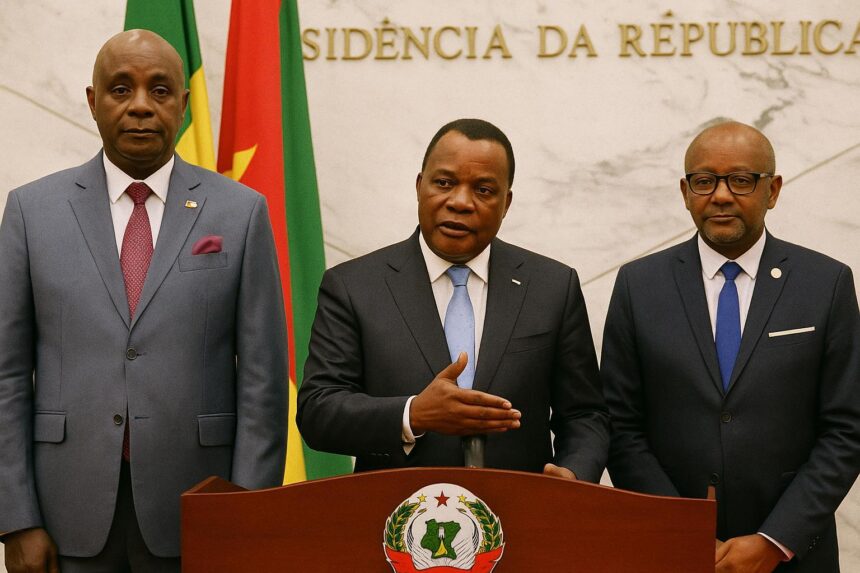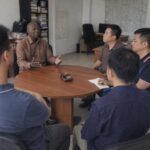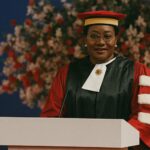Southern African overture for an African voice
The late July bustle of Gaborone’s diplomatic district seldom rivals New York or Geneva, yet on 24 July 2025 the Botswana capital became a focal theatre of multilateral courtship. Congolese Foreign Minister Jean-Claude Gakosso, fresh from consultations in Maputo, delivered a concise but evocative plea to his Southern African counterparts: elevate an African, Firmin Edouard Matoko, to the helm of UNESCO. His message, echoed earlier before Mozambique’s top diplomats, was not cloaked in revolutionary fervour but couched in the measured idiom of consensus: Africa must help steer global cultural governance, not merely observe it.
- Southern African overture for an African voice
- Matoko’s multilateral pedigree in perspective
- Regional alignments and the calculus of votes
- Cultural diplomacy as soft-power continuum
- Navigating global currents and potential rivals
- Domestic resonance and presidential stewardship
- A consensual horizon for Brazzaville’s diplomacy
Matoko’s multilateral pedigree in perspective
Matoko, currently UNESCO Assistant Director-General in charge of Priority Africa and External Relations, is no stranger to the Parisian corridors of the United Nations system. Colleagues describe him as a “quiet strategist” whose three decades of service have included steering the flagship General History of Africa project and brokering delicate cultural restitution dialogues (UNESCO archives, 2023). The Congolese campaign emphasises that this institutional memory is paired with a vision “that speaks with Africa, not merely about Africa”, a formulation that has resonated from Dakar to Windhoek. Analysts within the African Union Commission note that his technocratic reputation could reassure donor capitals wary of abrupt policy pivots while still advancing an agenda of equitable heritage protection.
Regional alignments and the calculus of votes
The UNESCO Executive Board’s 58 members will cast their ballots in 2025, and Southern Africa’s voice block—Botswana, Mozambique, South Africa, Angola and others—could prove decisive. By visiting Maputo and Gaborone first, Brazzaville’s envoys acknowledged Pretoria’s longstanding influence within SADC but opted for capitals perceived as diplomatically agile and less encumbered by competing candidacies. A senior Mozambican official, speaking on background, portrayed Gakosso’s pitch as “respectful yet insistent”, adding that Maputo values Matoko’s prior advocacy for Lusophone heritage sites along the Indian Ocean coastline.
Cultural diplomacy as soft-power continuum
Beyond closed-door briefings, the Congolese delegation wove symbolic gestures into its itinerary. In Maputo, wreaths were laid at the mausoleum of Samora Machel, linking the anti-colonial struggle with UNESCO’s mandate of promoting a plural narrative of world history. The same historical thread connected the delegation’s forthcoming stop in Mauritius, whose Aapravasi Ghat World Heritage site commemorates labour migrations across the Indian Ocean. Such commemorations, while not electoral in the strict sense, reaffirm Brazzaville’s framing of Matoko as custodian of a shared African memory, and by extension, a steward of global cultural conscience.
Navigating global currents and potential rivals
The term of the current Director-General, Audrey Azoulay, officially ends in November 2025; insiders in Paris suggest she may abstain from seeking a third mandate, but no formal statement has been issued. Potential contenders from Eastern Europe and the Asia-Pacific quietly test the waters, aware that UNESCO has never been led by a sub-Saharan African. In this context, Brazzaville’s insistence on early groundwork mirrors practices observed during the ultimately successful Egyptian campaign for the leadership of the World Trade Organization in 2024. A veteran diplomat at the Organisation Internationale de la Francophonie notes that “silent months between overt declarations are where alliances solidify”; by that metric, Congo’s July tour appears well-timed.
Domestic resonance and presidential stewardship
At home, President Denis Sassou Nguesso’s administration portrays the candidacy as part of a broader doctrine of constructive multilateralism. Recent policy papers from the Ministry of Foreign Affairs underline the economic dividends that accrue from seat-of-the-table participation in agenda-setting bodies. While public debate remains measured, civil-society educators in Brazzaville privately point to Matoko’s scholarship grants for Central African universities as concrete evidence of anticipated trickle-down benefits should he ascend to the Director-General’s office.
A consensual horizon for Brazzaville’s diplomacy
The campaign now shifts to West and East African capitals, where Prime Minister Anatole Collinet Makosso will lead follow-up missions. Success is far from pre-ordained; UNESCO elections often pivot on late-night trade-offs in Paris. Yet Congo-Brazzaville’s methodical engagement, respectful of regional sensibilities while projecting continental ambition, has already begun to recalibrate expectations. Should Matoko prevail, his tenure could symbolically underscore UNESCO’s founding ideal that peace must be built in the minds of men and women—a leitmotif President Sassou Nguesso frequently quotes in national addresses. Even in the event of a different outcome, Brazzaville’s diplomatic offensive demonstrates an aptitude for coalition-building that resonates with Africa’s quest for equitable representation within the multilateral system.




















